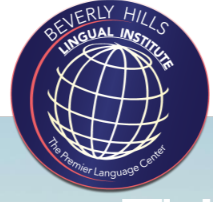Beginner Arabic students learn the basics of Arabic such as greetings, classroom phrases and conversational skills. They also learn how to shop, order food and discuss in detail their schedules and activities. They can form basic sentences and can read and write some Arabic script.

Beginner Arabic
students learn the basics of Arabic such as greetings, classroom phrases and conversational skills.
They also learn how to shop, order food and discuss in detail their schedules and activities. They can form basic sentences and can read and write some Arabic script.
Adv Beginner Arabic
students go more in depth with everyday life skills in Arabic. They start out by discussing one's home and giving commands, then traveling and giving directions, and finally they can discuss their experiences and hobbies. Students start to learn how to do more advanced discourse.
students start out with phrases and vocabulary to discuss their travels in depth. Included in this is discussing experiences abroad, but also descriptors on recommendations and making appointments.
Pre-Intermediate 2 enables students in depth to go shopping and go to restaurants, moving beyond basic vocabulary that was covered in Beginner 2.
Pre-Intermediate
Teaches students how to address needs in the doctor's office, and describing in general your body and feelings. Pre-Intermediate 4 introduces students to the formal language in Arabic, all its conjugations and uses in the business context.
Level 5 is movies, and Level 6 is technology and change, where students can discuss their lives and how technology and change affects them.
Intermediate
Students will work to expand their speaking, reading, listening and writing skills. Intermediate students can communicate about themselves fluently, have mastered all basic grammar and vocabulary from the beginner and pre-intermediate levels.
Intermediate students learn how to navigate situations outside themselves, where they need to communicate and get around in all difficult situations. In the higher intermediate levels, students will challenge themselves to communicate outside of everyday situations.
Upper-Intermediate
Students are trying to prepare to work and function like an advanced student. Students start to move beyond just speaking in concrete terms and instead get used to speaking in abstract terms about language.
Topics such as community, current events, history, and other subjects are brought up and discussed.
Students also start focusing much more on real world resources and materials, dramas, tv shows, music, and other materials created for Arabic native speakers.
Advanced
students are feeling accustomed to discussing difficult subjects in language. From current events to economics, students will be discussing abstractly on a variety of levels.
It is assumed that all students can both discuss themselves thoroughly and also navigate all intermediate needs in language. Advanced students start out by really trying to get used to speaking abstractly, and then they move forward into discussing specialty areas using language.
Most students at times will sound like native speakers and should be able to be understood by speakers of the language not accustomed to speaking to non-native speakers.
Why choose Hills Learning
Hills Learning has been fully accredited since May 2016 by the Middle States Association of Colleges and Schools.
Student-Oriented Approach
We take a student-oriented learning approach in which students come first, and we pride ourselves on excellent customer service.
Best Native-Speaking Teachers
We spend lots of time and energy recruiting some of the best native-speaking teachers for the languages we offer.
Proven Teaching Methods
Hills Learning has its own unique teaching method, SWIRL, that focuses on the speaking and listening components of the language for a highly interactive learning experience.

Learning Arabic course language will not only increase your chances of finding work opportunities but it's also been shown to increase your earnings.

Arabic, the fifth most commonly spoken language in the world, is spoken natively in twenty-six countries, by almost four hundred million people in the Arab world.

Arabic is one of the world’s major languages, spoken in a broad belt extending from the Arabian Peninsula north to the Fertile Crescent and then west to the Atlantic Ocean.

Most students at language loop study modern standard arabic, which is used in academic and professional settings, in the media, and in literature throughout the middle east and north africa.

Arabic language course is offered by Askademic.The space is designed around a Belgium theme, from the architecture to the tricycles, all with the goal of providing your child with an immersive language learning environment.
© 2025 coursetakers.com All Rights Reserved. Terms and Conditions of use | Privacy Policy